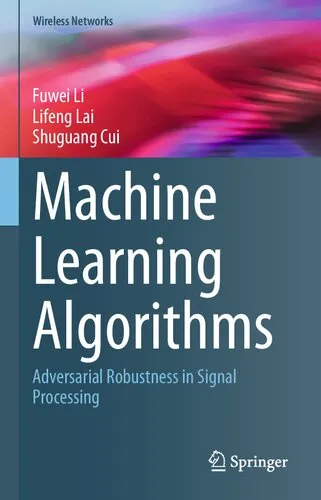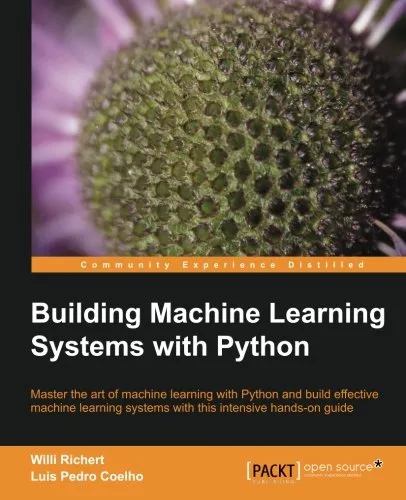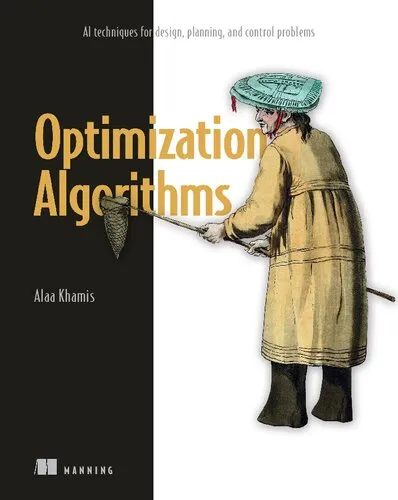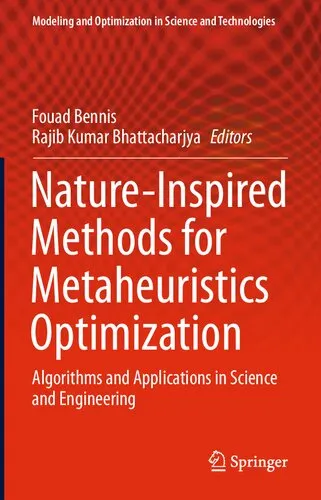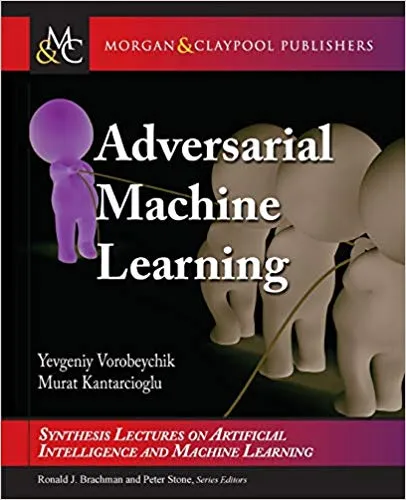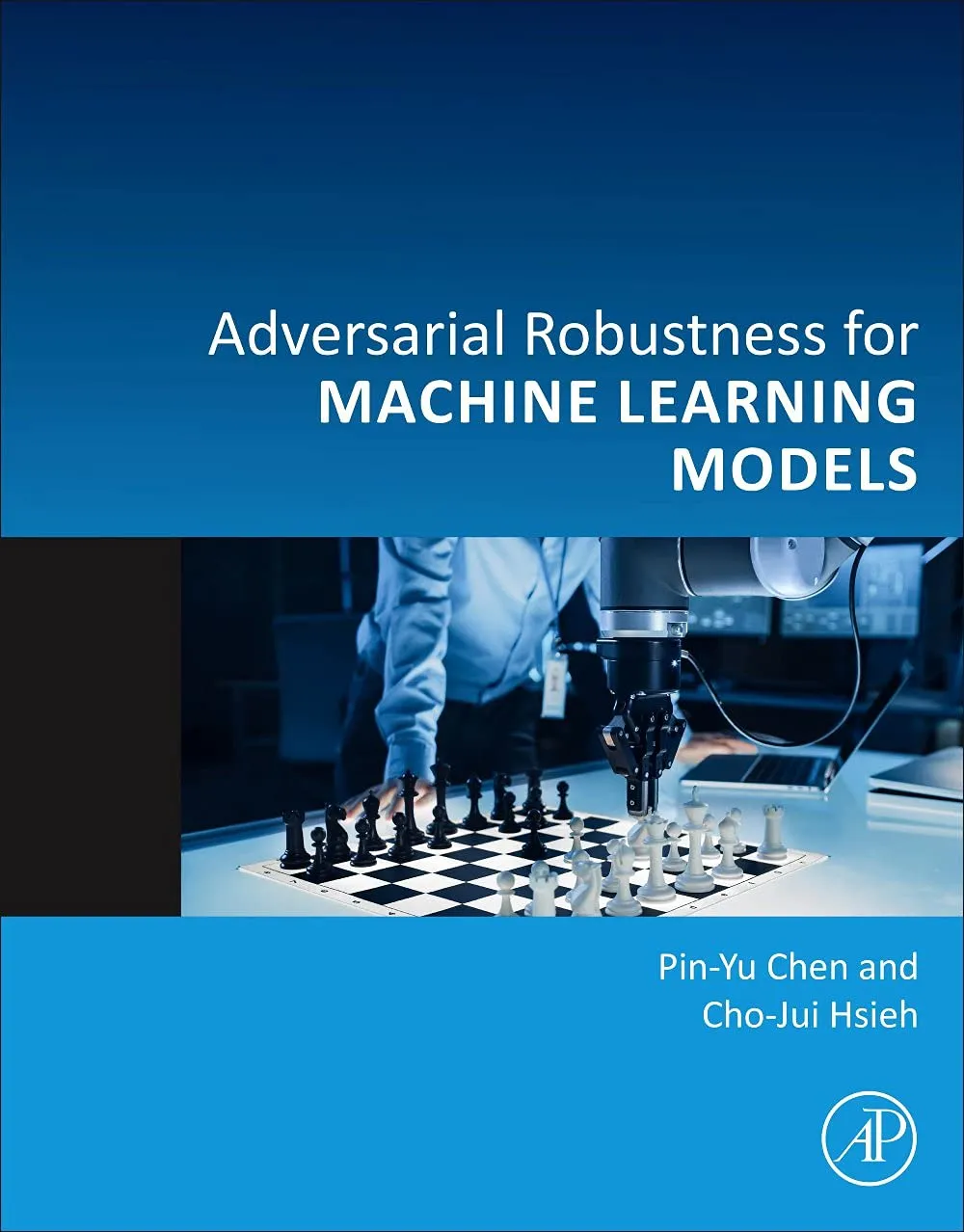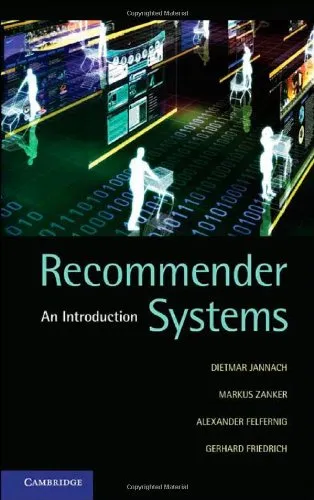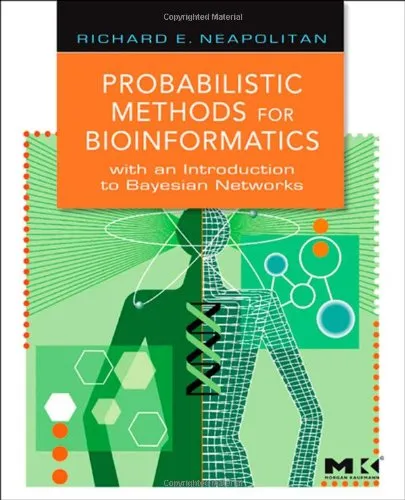Machine Learning Algorithms: Adversarial Robustness in Signal Processing
4.0
بر اساس نظر کاربران

شما میتونید سوالاتتون در باره کتاب رو از هوش مصنوعیش بعد از ورود بپرسید
هر دانلود یا پرسش از هوش مصنوعی 2 امتیاز لازم دارد، برای بدست آوردن امتیاز رایگان، به صفحه ی راهنمای امتیازات سر بزنید و یک سری کار ارزشمند انجام بدینکتاب های مرتبط:
معرفی کتاب: Machine Learning Algorithms: Adversarial Robustness in Signal Processing
کتاب Machine Learning Algorithms: Adversarial Robustness in Signal Processing نوشتهی ما، فووی لی، لیفنگ لای، و شوگوانگ کای، پژوهشی جامع و دقیق در حوزه یادگیری ماشینی و سیگنالپردازی مقاوم در برابر حملات Adversarial است. در این کتاب به بررسی مدلهای یادگیری ماشینی و اثرات حملات مخرب Adversarial بر عملکرد این مدلها پرداختهایم، و به روشهایی عملی و نظری برای افزایش پایداری این الگوریتمها در محیطهای چالشبرانگیز پرداختهایم.
خلاصهای جامع از کتاب
این کتاب برای محققین، دانشجویان و مهندسین حوزه یادگیری ماشینی و Signal Processing طراحی شده است که تلاش دارند درک عمیقتری از تأثیرات حملات Adversarial در عملکرد مدلهای هوش مصنوعی به دست آورند. ما در این اثر دو هدف کلیدی را دنبال میکنیم: ابتدا بررسی چالشها، آسیبپذیریها و مشکلات موجود در سیستمهای یادگیری ماشینی، خصوصاً در زمینههای سیگنالپردازی؛ و دوم، ارائهی راهحلها و الگوریتمهایی که مقاومت این مدلها را در برابر حملات تقویت کند.
در این کتاب مقولهی Adversarial Examples در یادگیری ماشینی مورد بررسی دقیق قرار گرفته است. ما تلاش کردهایم تا با استفاده از ریاضیات پیشرفته و تحلیلهای آماری کاربردی، پایه علمی حملات Adversarial را توضیح دهیم و راهکارهایی نوین پیشنهاد کنیم که در مقایسه با سایر روشها، پایداری و عملکرد مدلها را به طور جدی بهبود دهد.
سرفصلهای کتاب شامل موضوعاتی همچون مقدمهای بر یادگیری ماشینی و Signal Processing، آشنایی کامل با Adversarial Examples، چگونگی طراحی حملات، و همچنین استراتژیهای موثر برای مقابله با این تهدیدات میباشد. مخاطب در پایان مطالعه کتاب، توانایی طراحی سیستمهایی مقاوم را پیدا خواهد کرد که قادر به کاهش یا خنثیسازی تأثیرات منفی ناشی از حملات Adversarial باشد.
نکات کلیدی کتاب
- درک عمیق از Adversarial Robustness و پیامدهای این مفهوم در یادگیری ماشینی.
- تحلیل ریاضی دقیق از نحوه اجرای حملات Adversarial و تاثیر آن بر مدلها.
- ارائه تکنیکهای پیشرفته و کاربردی برای مقاومسازی مدلها در برابر تهدیدات.
- پوشش جامع مفاهیمی همچون Regularization و Normalization در زمینه Adversarial Learning.
- بحث پیرامون چارچوبهای نرمافزاری و پیادهسازی الگوریتمهای مقاوم.
نقلقولهای مشهور از کتاب
“Understanding and mitigating the effects of adversarial attacks is not merely a technical necessity but a foundational step toward ethical and reliable machine learning systems.”
“The intersection of Machine Learning and Adversarial Signal Processing is where theoretical advancements meet real-world challenges, defining the future of robust AI systems.”
چرا این کتاب اهمیت دارد؟
هوش مصنوعی و یادگیری ماشینی به سرعت در حال نفوذ به هر جنبهای از زندگی مدرن هستند؛ از صنعت و پزشکی گرفته تا امنیت و حملونقل. اما وجود تهدیدات Adversarial میتواند اعتماد کاربران و قابلیت این سیستمها را به شدت کاهش دهد. این کتاب با بررسی دقیق اجزای مقاومسازی، به خوانندگان کمک میکند تا درک بهتری از اهمیت امنیت و پایداری مدلهای AI پیدا کنند.
از آنجایی که اهمیت مقاومسازی مدلهای یادگیری ماشینی نه فقط در امنیت دادهها بلکه در تضمین عملکرد صحیح آنها است، این کتاب میتواند به عنوان مرجعی حیاتی برای افرادی باشد که به دنبال تحقیق و توسعه در این حوزه حساس هستند. ما معتقدیم که مطالعه این کتاب قدم مهمی است در ایجاد سیستمهای مقاومتری که آینده تکنولوژی را رقم خواهند زد.
Introduction to "Machine Learning Algorithms: Adversarial Robustness in Signal Processing"
Machine learning has revolutionized how we approach problem-solving in a wide range of fields, including signal processing. However, as powerful as these algorithms are, they remain vulnerable to adversarial attacks. "Machine Learning Algorithms: Adversarial Robustness in Signal Processing" explores the cutting-edge intersection of machine learning, adversarial robustness, and signal processing in an accessible and methodical way.
Authored by Fuwei Li, Lifeng Lai, and Shuguang Cui, this book serves as a crucial guide for researchers, practitioners, and students concerned with developing resilient machine learning systems that align with real-world challenges in signal processing applications. In an era where adversarial attacks threaten the integrity and reliability of intelligent systems, this book provides both theoretical foundations and practical insights into defending against such vulnerabilities.
Detailed Summary of the Book
The book is divided into meticulously crafted sections that take a comprehensive approach to equipping readers with the tools and knowledge necessary for building robust machine learning models in the context of signal processing.
The initial chapters lay the groundwork by introducing the fundamentals of both machine learning and signal processing. These serve as a primer for readers of varying expertise. The authors discuss the popular supervised and unsupervised learning algorithms, including neural networks, support vector machines, and clustering models, as they pertain to processing and interpreting signals.
Subsequent chapters delve into the key topic of adversarial robustness. The authors present the nature, scope, and mechanisms of adversarial attacks, alongside techniques that empower practitioners to detect and mitigate these risks. By analyzing adversarial examples in the context of signal processing, the book demonstrates how malicious entities can manipulate algorithms to produce inaccurate results. Techniques such as adversarial training, model regularization, and advanced defense mechanisms are explained in great detail, supported by real-world case studies.
The book also juxtaposes the theoretical aspects with practical implementations, offering coding exercises and pseudocode to enhance the learning process. These practical outputs empower readers to translate concepts into concrete action, ensuring better adaptability to real-world signal processing challenges.
Key Takeaways
- A comprehensive understanding of machine learning algorithms used in processing audio, image, and other signal modalities.
- Deep insight into adversarial vulnerabilities and the impact of attacks on machine learning models.
- Practical solutions and defense mechanisms to build robust and reliable intelligent systems.
- Guidance on applying both classic and modern machine learning methods for secure signal processing applications.
- Real-world applications and case studies illustrating adversarial robustness in action.
Famous Quotes from the Book
"Adversarial robustness is not an option but a necessity; the integrity of intelligent systems hinges on the ability to anticipate and defend against malicious manipulations."
"Signal processing is the canvas upon which machine learning paints, but without robustness, even the most beautiful picture is vulnerable to distortion."
"To build truly intelligent systems, machines must not only emulate human cognition but also withstand human ingenuity aimed at deception."
Why This Book Matters
In an age defined by increasing dependence on machine learning for critical tasks, adversarial attacks have emerged as a considerable threat to the security and trustworthiness of intelligent systems. "Machine Learning Algorithms: Adversarial Robustness in Signal Processing" addresses this issue with a unique focus on signal processing, making it an invaluable addition to the libraries of data scientists, engineers, and security researchers.
The authors combine rigorous academic research with practical know-how, ensuring the book is both intellectually enriching and actionable. By emphasizing adversarial robustness, the book responds to a growing need for secure, resilient solutions in applications ranging from autonomous vehicles and healthcare diagnostics to telecommunications and defense systems.
This book bridges the divide between machine learning and signal processing communities, fostering new interdisciplinary methodologies for improving adversarial resistance. Its emphasis on both the "how" and "why" of robust machine learning establishes it as a must-read for anyone invested in the future of intelligent systems.
دانلود رایگان مستقیم
شما میتونید سوالاتتون در باره کتاب رو از هوش مصنوعیش بعد از ورود بپرسید
دسترسی به کتابها از طریق پلتفرمهای قانونی و کتابخانههای عمومی نه تنها از حقوق نویسندگان و ناشران حمایت میکند، بلکه به پایداری فرهنگ کتابخوانی نیز کمک میرساند. پیش از دانلود، لحظهای به بررسی این گزینهها فکر کنید.
این کتاب رو در پلتفرم های دیگه ببینید
WorldCat به شما کمک میکنه تا کتاب ها رو در کتابخانه های سراسر دنیا پیدا کنید
امتیازها، نظرات تخصصی و صحبت ها درباره کتاب را در Goodreads ببینید
کتابهای کمیاب یا دست دوم را در AbeBooks پیدا کنید و بخرید
1449
بازدید4.0
امتیاز0
نظر98%
رضایتنظرات:
4.0
بر اساس 0 نظر کاربران
Questions & Answers
Ask questions about this book or help others by answering
No questions yet. Be the first to ask!
